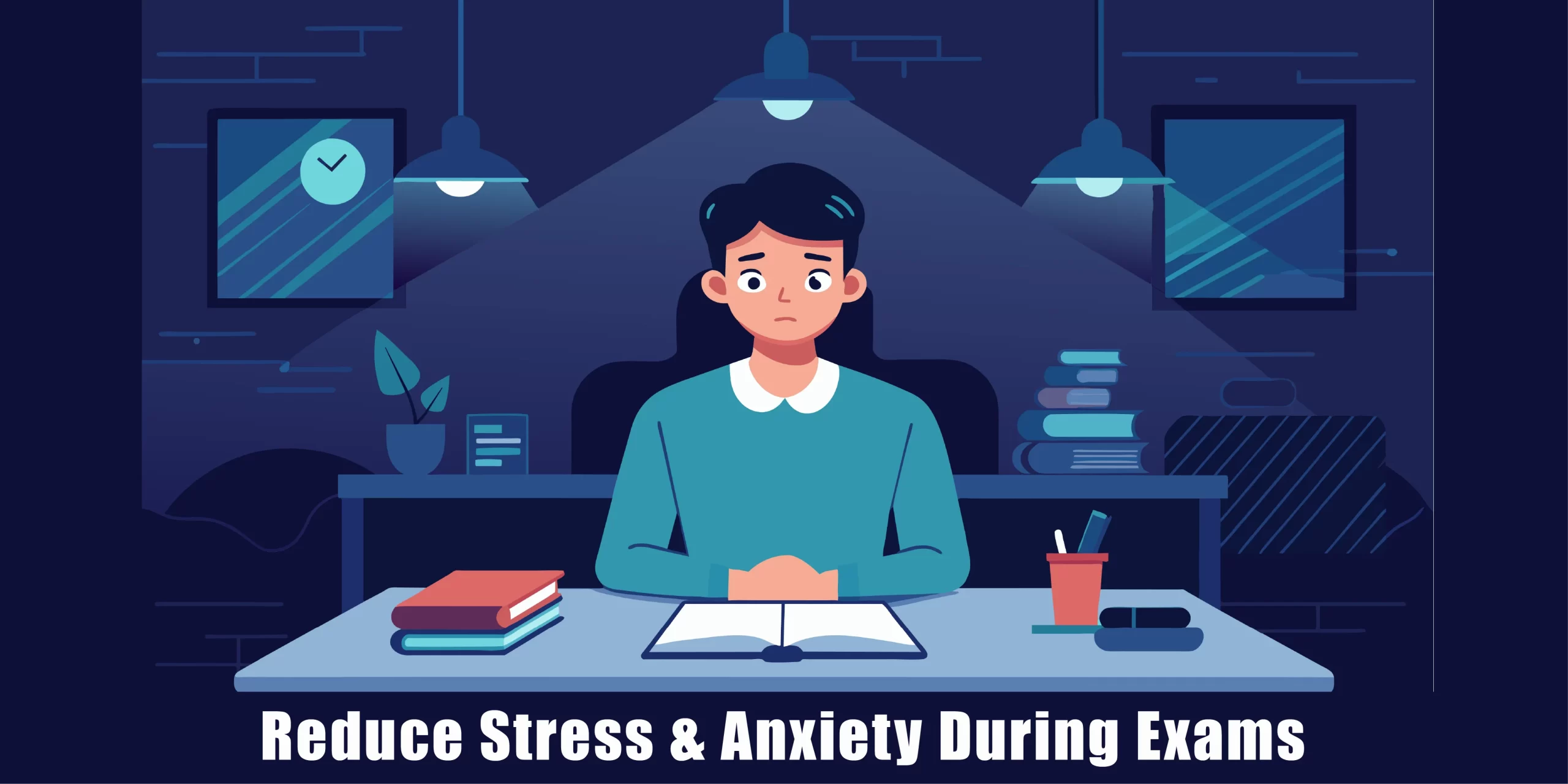Understanding Exam Stress
Exams are an inevitable part of the academic journey, and with them comes the often overwhelming stress and anxiety. Exam stress is a common phenomenon affecting students of all ages, from high school to university. It manifests in various ways, including sleepless nights, anxiety attacks, and a constant feeling of dread. Recognizing the prevalence of exam stress is the first step in addressing and managing it effectively. Many students experience exams as stressful, leading to a range of emotional and physical symptoms that can hinder their performance and overall well-being.
Importance of Stress Management
Managing exam stress and anxiety is crucial not just for academic success, but also for overall well-being. Chronic stress can lead to a host of health problems, both mental and physical, including depression, high blood pressure, and weakened immune function. Therefore, it is essential to adopt strategies to reduce stress and anxiety, ensuring that students can perform to the best of their abilities while maintaining their health. By implementing effective stress management techniques, students can enhance their focus, improve their performance, and enjoy a more balanced and fulfilling academic life.
Types of Online Exams
Live Proctored Exams
Live proctored exams involve a proctor monitoring the student in real-time through a webcam. This method ensures the integrity of the exam by preventing cheating. To succeed in live proctored exams, students should ensure a stable internet connection, a quiet environment, and familiarity with the exam platform. Mastering online exams like these requires technical preparedness and a calm mindset. Students should also practice using the platform before the exam to avoid any technical difficulties that could increase stress during the actual test.
Automated Proctored Exams
Automated proctored exams use advanced software to monitor students using algorithms that detect suspicious activities. These exams are less intrusive than live proctoring but require students to adhere strictly to guidelines. Tips for success include ensuring a well-lit room, avoiding unnecessary movements, and being aware of the software’s rules. Students should read the instructions carefully and follow them to avoid any issues. Being familiar with the software and understanding its functionalities can help reduce anxiety during the exam.
Open Book Exams
Open book exams allow students to refer to their notes and textbooks. While this might seem easier, it actually requires a deeper understanding of the material as the questions are often more complex. Effective preparation involves organizing study materials, practicing with past papers, and time management during the exam. Students should not rely solely on their notes but ensure they understand the key concepts and how to apply them. Mastering online exams like these involves practicing critical thinking and analytical skills.
Take-Home Exams
Take-home exams offer flexibility as students can complete them over a longer period, often days or even weeks. However, this can lead to procrastination and time management issues. Strategies for success include creating a clear plan, setting daily goals, and starting early to avoid last-minute rushes. Students should treat take-home exams as seriously as in-person exams and allocate specific times each day for exam work. This helps maintain a steady pace and reduces last-minute stress.
Timed Online Exams
Timed online exams require students to complete the exam within a specific time frame. Managing time effectively is crucial in these exams. Students should practice with timed mock exams, read questions carefully before answering, and allocate time for each section based on its weight. Developing a time management strategy is key to success in timed exams. Mastering online exams like these involves practicing under timed conditions to build confidence and improve speed.
Untimed Online Exams
Untimed online exams provide the benefit of flexibility, allowing students to work at their own pace. However, staying focused can be challenging. Tips for success include setting personal deadlines, taking regular breaks to avoid burnout, and maintaining a disciplined study schedule. While untimed exams offer more freedom, it is important to avoid procrastination and ensure steady progress. Mastering online exams like these requires self-discipline and effective time management.
Causes of Exam Stress
High Expectations and Pressure
High expectations from oneself, parents, and educators can lead to significant stress. The pressure to perform well can be overwhelming, especially when students feel they must meet unrealistic standards. It is important to set achievable goals and communicate openly with those who set these expectations. Unrealistic expectations can create a sense of failure and inadequacy, increasing exam stress. Setting realistic goals and focusing on personal growth rather than perfection can help reduce pressure.
Lack of Preparation and Time Management
Poor preparation and time management are major causes of exam stress. Procrastination, lack of a structured study plan, and ineffective study techniques can all contribute to last-minute cramming and increased anxiety. Developing a consistent study routine and using effective time management strategies are key to reducing stress. Students should create a study schedule that includes all subjects and allows sufficient time for revision. Breaking study sessions into manageable chunks can improve focus and retention.
Fear of Failure and Performance Anxiety
Fear of failure is a common source of anxiety among students. This fear can be paralyzing and prevent students from performing their best. It is important to shift the focus from fearing failure to striving for improvement and learning from mistakes. Exam stress often stems from a fear of not meeting expectations or disappointing others. Reframing failure as a learning opportunity can help reduce anxiety and improve performance.
Overwhelming Workload and Tight Deadlines
An overwhelming workload and tight deadlines can lead to significant stress. Balancing multiple subjects, assignments, and exams requires effective organizational skills. Prioritizing tasks, breaking them into manageable chunks, and seeking help when needed can alleviate some of this stress. Students should use tools like planners or apps to keep track of deadlines and plan their study time. Delegating tasks and asking for help when needed can also reduce the burden and improve efficiency.
Coping with Exam Stress
Mastering Online Exams
To master online exams, students should become familiar with the exam format and platform, practice with past exams, and develop a strong understanding of the subject matter. Utilizing online resources and seeking guidance from instructors can also be beneficial. Being well-prepared can significantly reduce exam stress. Students should also participate in online forums and study groups to share tips and gain insights from peers.
Best Online Exam Help
There are numerous resources available online that can provide exam help. Websites, apps, and online tutors can offer study materials, practice tests, and personalized guidance. Utilizing these resources can enhance preparation and reduce anxiety. Students should take advantage of online tutorials, webinars, and interactive sessions to strengthen their understanding of the subject. Online exam help services can provide tailored support, making it easier to tackle difficult topics and improve overall performance.
Ways to Deal with Exam Stress
Practical tips and techniques can help students manage exam stress effectively:
- Practice and Preparation: Consistent study habits and regular practice are essential. Creating a study schedule and sticking to it ensures all topics are covered. Regular revision helps reinforce learning and improves retention. Practice tests can help identify weak areas and improve confidence.
- Relaxation Techniques: Deep breathing exercises, meditation, and physical activities such as yoga can help reduce stress and improve concentration. These techniques promote relaxation and mental clarity, making it easier to focus during exams. Students should incorporate relaxation exercises into their daily routine to manage anxiety effectively.
- Healthy Lifestyle: Maintaining a balanced diet, ensuring adequate sleep, and engaging in regular physical activity are crucial for maintaining physical and mental health. A healthy lifestyle supports cognitive function and reduces stress. Students should avoid excessive caffeine and junk food, as these can increase anxiety and negatively impact performance.
- Time Management: Creating a realistic study schedule, setting priorities, and adhering to deadlines can reduce last-minute stress. Effective time management ensures that all subjects receive adequate attention and prevents cramming. Students should break study sessions into manageable blocks and take regular breaks to avoid burnout.
- Support System: Seeking help from friends, family, and mental health professionals can provide emotional support and practical advice. Talking about feelings of stress and anxiety can help students feel understood and supported. Joining study groups and participating in discussions can also provide a sense of community and reduce feelings of isolation.
Dealing with Exam Anxiety
Exam Taker Strategies
Staying calm and focused during exams is crucial for success. Strategies include deep breathing exercises, positive self-talk, and visualizing success. Taking regular breaks and staying hydrated can also help maintain concentration. Students should practice mindfulness techniques to stay present and avoid negative thoughts. Preparing a checklist of necessary materials and arriving early can also reduce last-minute anxiety.
Online Exam Helper
Using an online exam helper can provide additional support. These services offer assistance with exam preparation, practice tests, and study tips. It is important to use these resources ethically to enhance learning and performance. Students should ensure that the online exam helper they choose is reputable and reliable. Seeking help from qualified tutors and educators can provide valuable insights and improve exam readiness.
Hire Someone to Take My Exam
While hiring someone to take an exam may seem tempting, it is not a recommended or ethical solution. Instead, students should focus on improving their own skills and seeking legitimate help when needed. Cheating can have serious consequences and undermine academic integrity. Instead, students should use the resources available to them to build their knowledge and confidence. Developing strong study habits and seeking support from instructors can lead to long-term success.
Help with Online Exam
Ethical ways to get support include seeking help from instructors, joining study groups, and using online resources. These methods can provide the necessary support without compromising academic integrity. Students should utilize online forums, discussion boards, and educational websites to enhance their understanding of the material. Help with online exams should be sought in a way that promotes learning and personal growth.
Recap of Key Points
Reducing stress and anxiety during exams is essential for academic success and overall well-being. By understanding the types of online exams, recognizing the causes of stress, and adopting effective coping strategies, students can manage their stress levels and perform to the best of their abilities. It is important to develop a balanced approach to studying, incorporating relaxation techniques and maintaining a healthy lifestyle.
Encouragement and Final Thoughts
Students are encouraged to adopt healthy practices, seek help when needed, and maintain a positive mindset. Remember that exams are just one part of the academic journey, and managing stress effectively can lead to better outcomes and a healthier lifestyle. By focusing on personal growth and learning, students can overcome challenges and achieve their academic goals.










